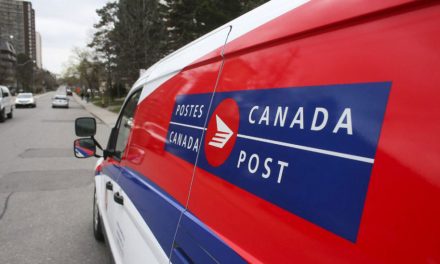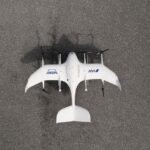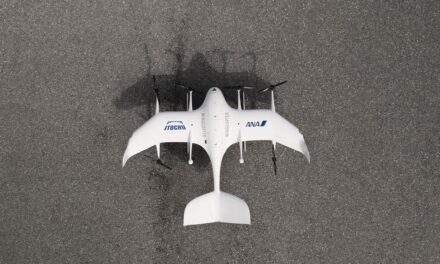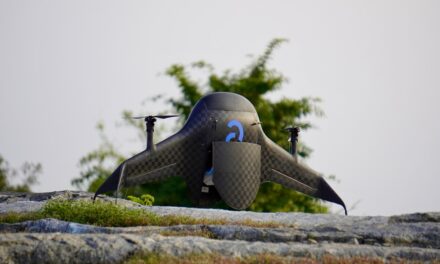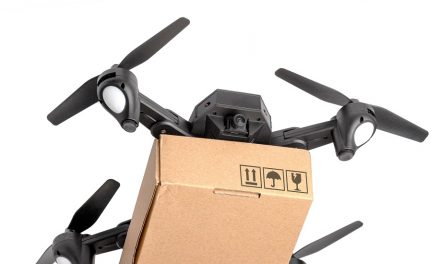
Wingcopter: Delivery drone applications will prevail where they serve a real need
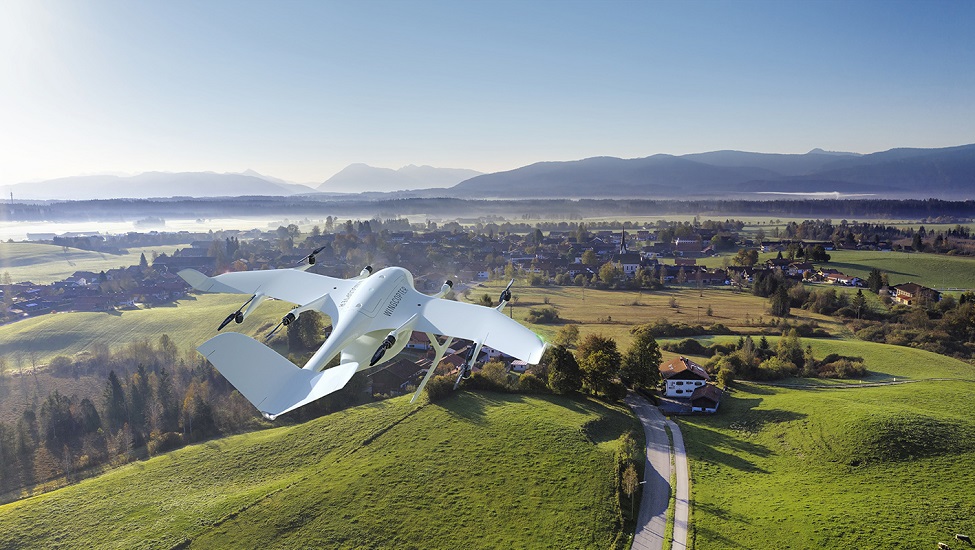
In a joint project, the Frankfurt University of Applied Sciences (Frankfurt UAS) and the delivery drone manufacturer and operator Wingcopter are testing the potential of on-demand transport of consumer goods to improve local supply in rural communities.
For the project called “DroLEx – Drohnen-Lastenrad-Express-Belieferung“ (“Drone Cargo Bike Express Delivery”), which is funded with almost 500,000 euros by the German Federal Ministry of Digital and Transport, the funding certificates were officially handed over to the project partners in Berlin today.
As part of the pilot project, everyday goods will be flown by Wingcopter from a medium-sized centre to surrounding smaller villages, where they will be delivered to end customers by cargo bike. The goal is to realize the fast and reliable delivery of groceries and other consumer goods to rural areas and thus improve the local supply of citizens. The use case is to be evaluated from an economic and environmental point of view and, if successful, a sustainable and easily scalable business model will be developed. The planned start of the first flights in the south of Hesse in Germany is in spring 2023.
Professor Dr. Kai-Oliver Schocke, Director of the Frankfurt UAS Research Lab for Urban Transport (ReLUT), comments: “In many rural areas today, supply is severely limited due to the closure of smaller, local stores. We expect that the use of delivery drones will improve the local supply in rural areas again. From a socioeconomic perspective, this type of delivery is especially beneficial to citizens with limited mobility, such as the elderly or those without their own cars. In addition, the alternative transport option can result in economic and environmental benefits for the partners involved.”
For economic reasons, regional retailers in rural areas in particular are often unable to offer their own delivery service. Delivery by Wingcopter delivery drones enables retailers to significantly expand their customer catchment area, as the range, speed and payload capabilities of the drones used also enable fast deliveries to more remote rural areas.
Using battery-powered Wingcopters and electric cargo bikes also enables emission-free delivery, bringing significant environmental benefits compared to road-based transport.
“Delivery drone applications will prevail where they serve a real need and improve lives. This is clearly the case with our medical delivery projects in Africa and other parts of the world. However, we are convinced that “Drone Delivery as a Service” offerings also have a real benefit for many people in rural areas of Germany. We are pleased to now be able to evaluate this use case over a longer period of time”, adds Selina Herzog, Head of Service Solution Design and Planning at Wingcopter.
The DroLEx project is the first of its kind in Germany and is funded by the Federal Ministry of Digital and Transport as part of the “Innovative Air Mobility” funding program. It is scheduled to run for 12 months.


